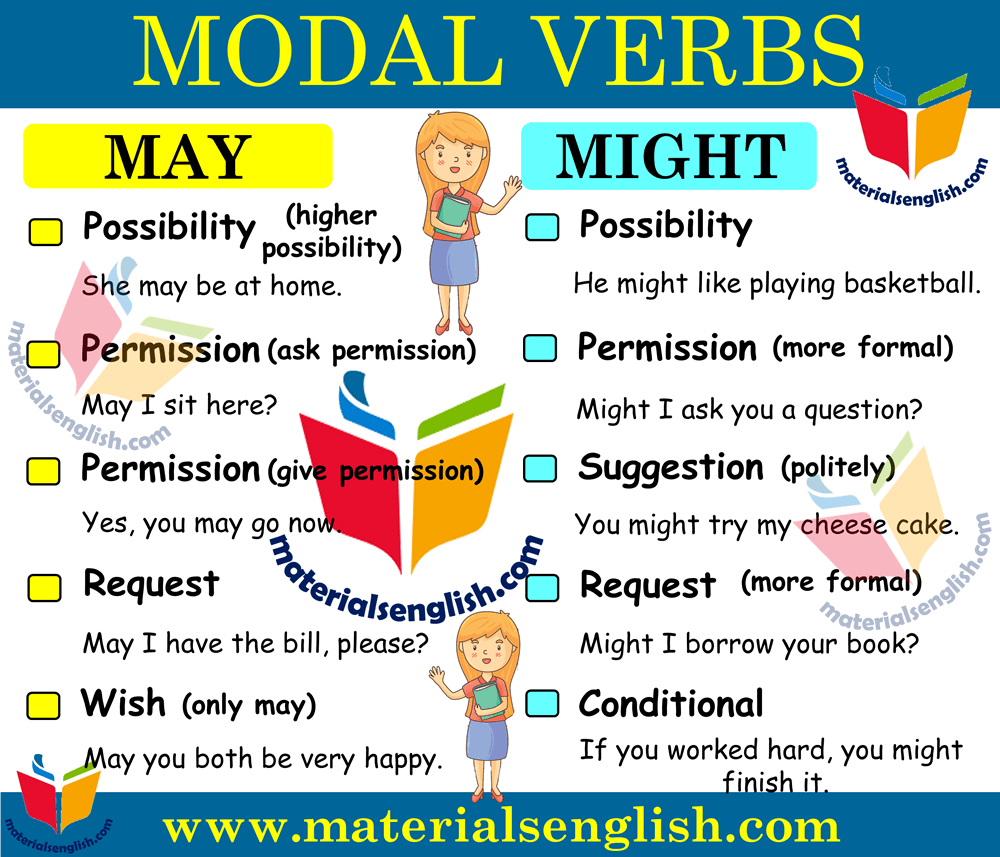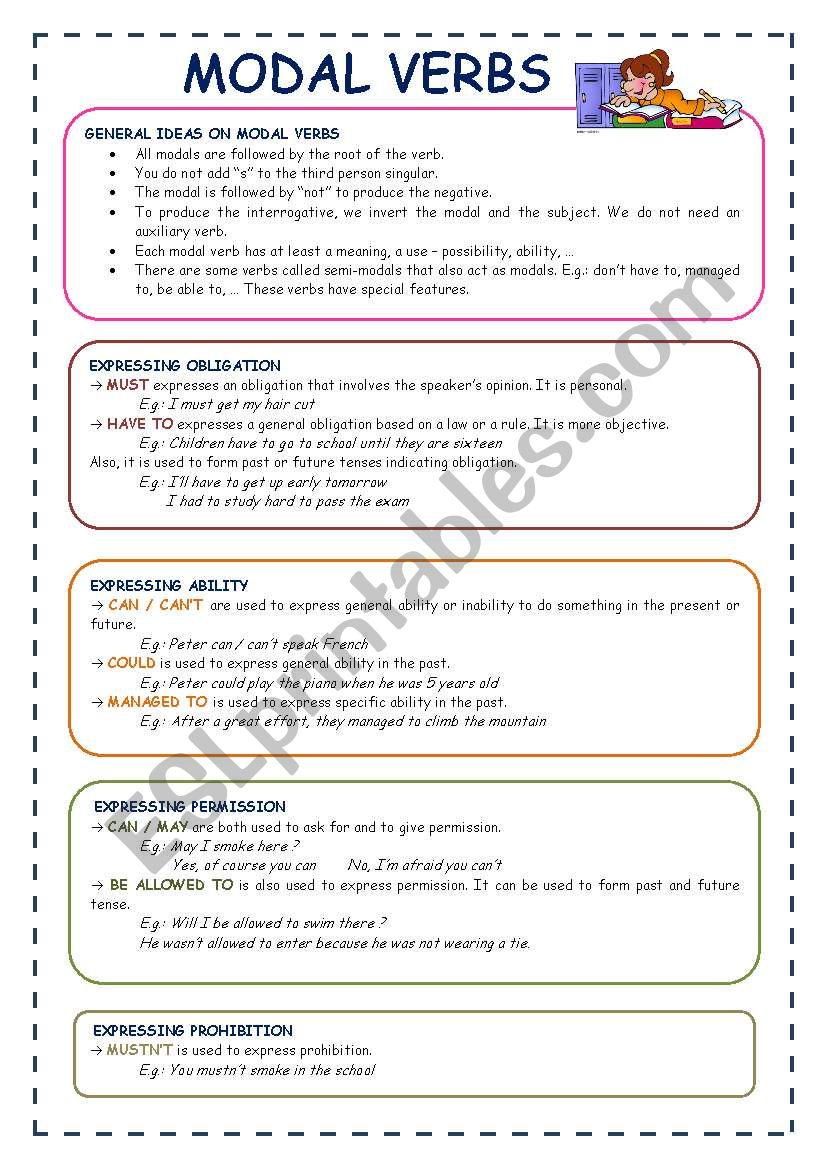

might / might not have + past participle.( Click here to review how to make the past participle) He could be on the bus (not: 'can be').Ģ: Using modal verbs to talk about the past: must / might / could / may / can't + have + past participle.The underground will be very busy now (not: 'should be').Ĭan Can is used for something that is generally possible, something we know sometimes happens:Ĭan is not used to talk about specific possibilities:.This use of should isn't usually used for negative events. Should / shouldn't Should and shouldn't are used to make an assumption about what is probably true, if everything is as we expect:

We use will and won't when we are very sure: Notice that the opposite of 'must' is ' can't in this case. I am waiting for Julie with another friend, David. 1: Talking about the present: must / might / could / may / can't + infinitive

We choose the verb depending on how sure we are. We can use these modal verbs (also called modals of deduction, speculation or certainty) when we want to make a guess about something. Click here to download this explanation as a pdf.Ĭlick here for all the exercises about modal verbs.


 0 kommentar(er)
0 kommentar(er)
